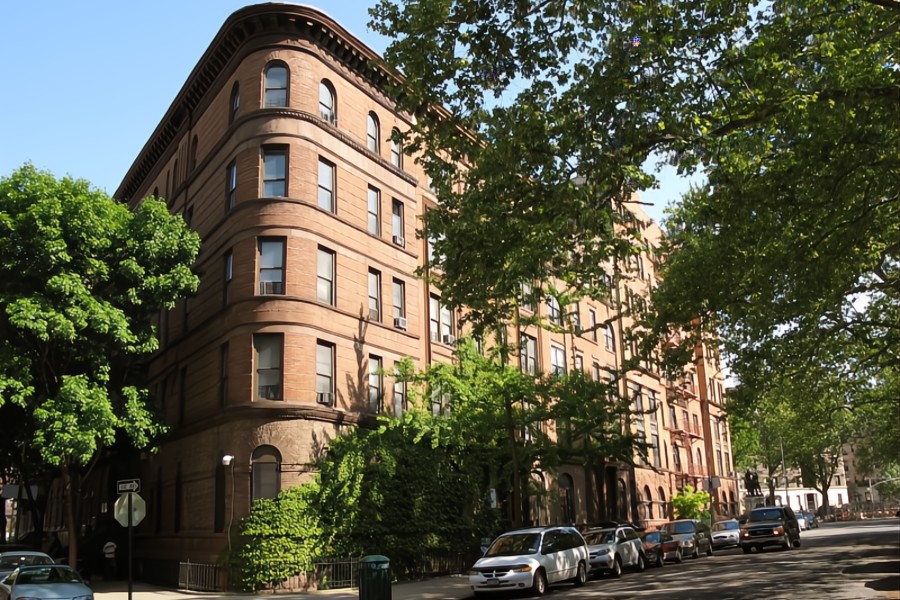 After she was diagnosed with breast cancer, Jackie Williams says she had a stark choice to make.
After she was diagnosed with breast cancer, Jackie Williams says she had a stark choice to make.
“I had to choose between working and getting treatment,” said Williams, 49, who worked in the entertainment industry and just underwent a mastectomy.
On. Nov. 1, the benefits she receives from the Supplemental Nutrition Assistance Program, commonly called food stamps, were cut as part of a $5 billion reduction to the program, dealing Williams another cruel blow. To make up the difference, she gets food from the New York Common Pantry on East 109th Street in East Harlem.
“I don’t know how I was getting by with the little I received before the cut,” Williams said Tuesday outside the pantry where she picked up a turkey and all the fixings for a Thanksgiving dinner. “This means a lot to me.”
The pantry is seeing thousands more people like Williams who, thanks to benefit cuts, the economic downturn and lingering difficulties from Hurricane Sandy, are stretching the city’s food pantries to the limit despite an improving economy, according to an annual survey released Tuesday by the New York City Coalition Against Hunger.
Up to 1.4 million New Yorkers lived in households without enough food in 2012, including one in five of the city’s children. One in eight residents suffered food insecurity (the possibility of running out of food) from 2010 to 2012 a 40 percent increase from 2000 to 2002. In the Bronx, about 49 percent of children lived in food insecure households from 2010 to 2012, an increase of 44 percent from 2006 to 2008.
And the city’s pantries, a last resort food resource for millions of New Yorkers, face an increased demand of 10 percent this year, on top of increases of 5 to 29 percent from 2010 to 2012, according to the survey.
As the SNAP program and other federal benefits are cut, many of these saw an almost 57 percent drop in government and private funding in 2013. About 45 percent of the pantries said they did not have the means to meet the demand they were facing and almost 46 percent had to turn people away or reduce the amount of food distributed.
“The good news is there are public policy answers,” said Joel Berg, executive director of the New York City Coalition Against Hunger.
Restoring cuts to the SNAP program, increasing the minimum wage and universal pre-K are all things that would help limit the amount of people experiencing hunger, he said.
“We can do better. We must rise together,” said Berg.
Stephen Grimaldi, executive director of the New York Common Pantry, said his organization was serving 1.4 million meals when he took the helm five years ago. For this fiscal year, he expects to serve at least 3 million meals.
This November saw a 27 percent increase in the number of people served by New York Common Pantry versus November 2012, meaning the effects of the SNAP cuts have been immediate. The cuts mean an average of 21 less meals per month, according to the U.S. Department of Agriculture.
Gov. Andrew Cuomo announced $4.5 million in grants Monday to help 2,600 emergency food providers throughout the state.
Rose Brito, 47, of East Harlem, who is disabled, said going to food pantries is her only option at this point. It was already hard to feed her two daughters when $40 was cut from her SNAP benefits.
“I go to three or four different pantries,” said Brito as she picked up a Thanksgiving meal. “I don’t want to be out here but for my kids i do what I have to do.”
Christopher Wallace, 51, of Chelsea, said the $11 cut to his $200 per month SNAP benefits has hurt efforts to keep his grandson and wife fed.
“The food used to last the whole month. Now, it’s more like 24 days of food,” said Wallace. “We are the richest city in the world. We shouldn’t have hungry people.”
Become a Harlem Insider!
By submitting this form, you are consenting to receive marketing emails from: . You can revoke your consent to receive emails at any time by using the SafeUnsubscribe® link, found at the bottom of every email. Emails are serviced by Constant Contact



















